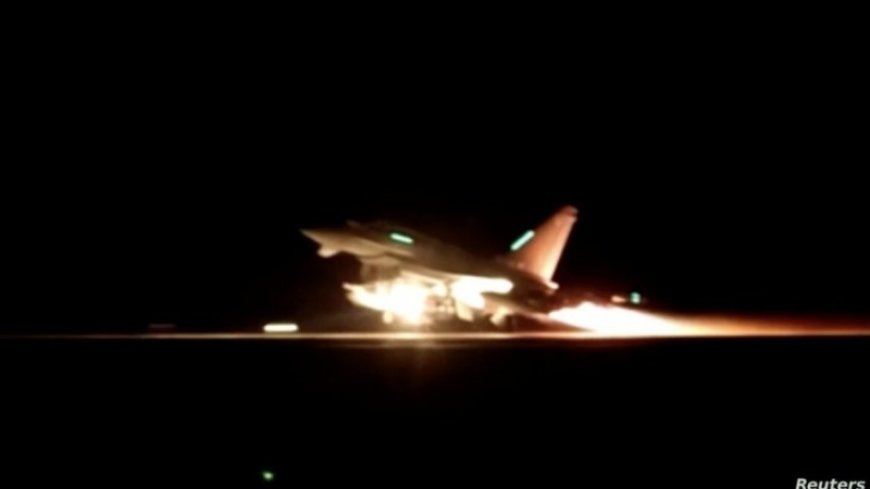USA and UK: We did not attack Yemen today
The US and UK defense departments have denied reports of any new attacks on Yemen.

A US Department of Defense official told Al Jazeera that neither the US nor coalition member countries carried out any attacks in Yemen yesterday. The British Ministry of Defense also announced that the news that the British Air Force carried out an attack on Yemen was false. An hour ago, Al Jazeera, quoting Yemeni sources, reported that the US and the UK targeted the "Jade" hills in Hodeidah province on Sunday evening. British Foreign Secretary "David Cameron" warned yesterday afternoon that if the route of cargo ships continues to be blocked, prices in the UK will increase and therefore they will attack Yemen again. According to the news provided by the Arab news agency, the US and the UK targeted 16 locations in Yemen, including Hodeidah Airport, Kahlan Camp, Al-Daylami Base and areas in Zubayd, in response to the Sanaa government's actions in Bab al-Mandeb. An official from Ansarullah stated that after these attacks, they responded by firing many missiles at American warships in the Red Sea and Bab al-Mandeb, sending a clear message that there was no hesitation in the will of the Yemenis.
America's and Britain's attack on Yemen was met with widespread public reaction and a warning from Yemeni officials. America and England carried out air and sea attacks against Yemenis in the early hours of the morning the previous day. In this operation, 60 targets in 16 centers affiliated with the Yemeni army were hit using more than 100 guided missiles. America and England targeted Sana, Hudaydah, Taiz, Hajjah and Saada provinces with missiles. In these attacks, 5 people from the Yemeni armed forces were martyred and 6 people were injured. America and Britain's claim is that these attacks were carried out in response to Yemen's actions against ships heading to occupied territories. Since the second month of the Zionist regime's war against Gaza, Yemeni forces have been trying to pressure Tel Aviv to stop the Gaza war by attacking the Eilat port in the south of the occupied territory with missiles and unmanned aerial vehicles, while also blocking the passage of ships going to this port. Now the American coalition in the Red Sea is trying to put pressure on the Yemenis to prevent them from supporting Gaza. However, Washington's perception turned out to be wrong, as these attacks led Yemenis to oppose the American coalition and a consensus to continue attacks against the Zionist regime. At a march attended by one million people in the capital Sanaa on Friday afternoon, Yemeni citizens declared that they were ready to continue the fight against America and support the people of Gaza against the occupation regime. Yemeni Defense Minister "Mohammad Nasser al-Atafi" warned America, England and the Zionist regime on Friday evening, saying that Yemen is ready to oppose and respond to the enemy, and that Yemen is in a high position in the Red Sea and Merkan. Mohammed Nasser al-Atafi also said: We have repeatedly warned that the Red Sea is off-limits to the Zionist enemy regime. Mohammed Al Buhaiti, a member of the Political Office of Yemen Ansarullah Movement, also asked the USA and the UK on Friday evening to review their accounts and learn from their past experiences on this issue. While the Yemeni people supported the action against the Zionist regime, representatives of the American Congress expressed their concern about their country entering a new war and emphasized that their country could not afford to enter this war. Ro Kana, Valerie Howell, Rashidah Tlaib, Mark Pokan and Republican Senator Rand Paul were among the congressmen who declared that Washington could not become involved in another war. The truth is that America and Britain's attack on Yemen is a continuation of the genocide committed by the Zionist regime against the people of Gaza. The continuation of these attacks may deeply affect and increase the developments in the region. Therefore, the continuation of the war situation in the Red Sea depends on the type and severity of Ansarullah's reaction./













































